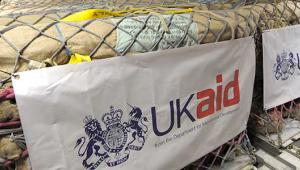The proposed Libyan government of national accord would be a power-sharing agreement between the countries’ two rival administrations under a plan developed by UN Libya envoy Bernardino Leon.
The internationally recognised parliament, elected in June 2014, is based in Torbruk, with a rival Islamist-led government based in the capital Tripoli. However, the Tobruk government has so far rejected the power-sharing pact because of the inclusion of amendments added by the Islamist government without its consent.
At yesterday’s meeting in London, co-hosted by the UK and UN Support Mission in Libya (UNSMIL), representatives from United Nations agencies and international bodies also pledged their continued commitment to assisting the country. It followed on from the Libya Experts Development Cooperation Forum held in Tunis in October.
Opening the meeting, Tobias Ellwood, UK minister for the Middle East and North Africa, pressed for the swift formation of the government of national accord.
He said the rival Libyan parties face a “stark choice”. Delayed approval of a unity government would put the stability of the country at risk following years of conflict, he warned.
Participants in the conference also made recommendations to encourage economic recovery and socio-economic development. Countries agreed to work together to identify Libya’s development needs and to identify possible options.
Speaking at the event, Ali Al-Za’tari, the United Nation’s deputy special representative to the country, said there was an opportunity to decide how to best help the GNA through proposed aid coordination structure and using lessons from countries that have faced similar conditions in the past.
The UN has already set in motion plans to provide direct help, Al-Za’tari said. But while Libya has the necessary resources its capacities remain weak and “will no doubt require plenty of assistance, funding and expertise”.













